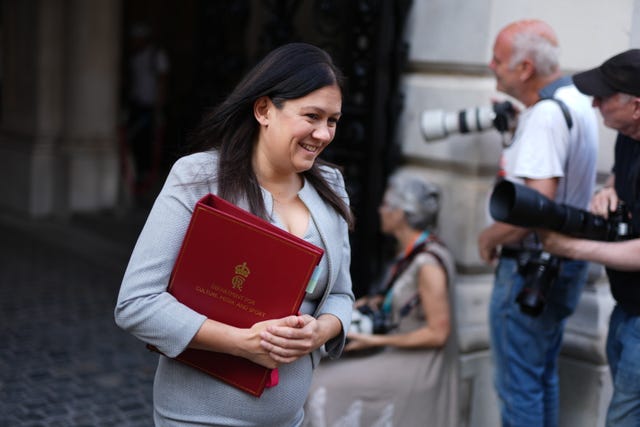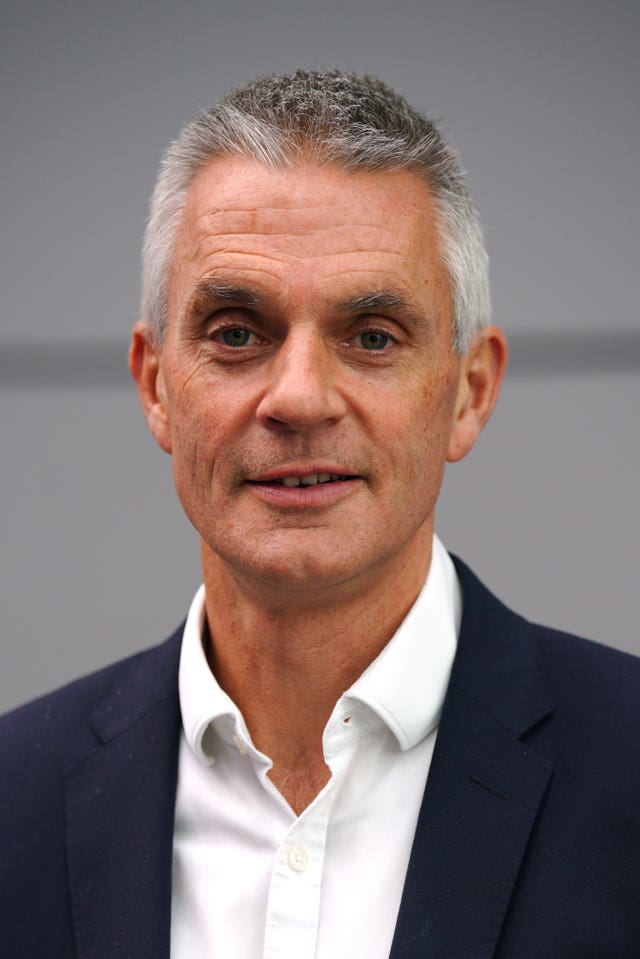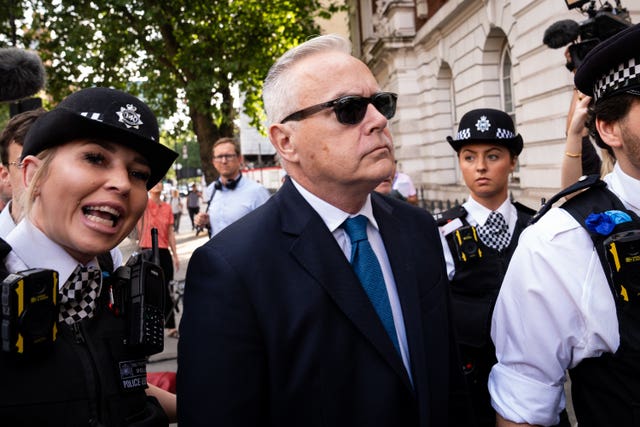Culture Secretary asks BBC to see if it can recoup money from Huw Edwards
Lisa Nandy spoke with director general Tim Davie on Thursday after Edwards’ admitted making indecent photographs.

The Culture Secretary has asked the BBC to look into whether it can recoup money from Huw Edwards’ pay packet after the former broadcaster admitted accessing indecent images of children.
Lisa Nandy spoke with BBC director general Tim Davie on Thursday after Edwards admitted making indecent photographs, with seven of the 41 images being of the most serious type.
Mr Davie has defended his decision to employ the veteran broadcaster until April, five months after he was told of Edwards’ arrest in November over the most serious category of indecent images of children.
After the meeting between Ms Nandy and Mr Davie, a statement issued by the Department for Culture, Media and Sport said: “The Culture Secretary is, like the whole nation, shocked by Huw Edwards’ abhorrent actions, and her thoughts are with the victims whose lives have been destroyed. It is now for the judiciary to decide on an appropriate sentence.

“The BBC is operationally and editorially independent, but given the incredibly serious nature of this issue, the Secretary of State has spoken to the BBC to raise concerns on a number of points regarding the handling of their own investigations into Huw Edwards, what safeguards and processes had been followed in this case, and additionally, what further action may be taken, especially with regard to the handling of licence fee payers’ money.”
Before Edwards resigned on medical advice, he was the broadcaster’s highest-paid newsreader, with a pay bracket between £475,000 and £479,999 for the year 2023/24, according to the BBC’s latest annual report.
It marked a £40,000 pay rise from 2022/23, when he was paid between £435,000 and £439,999.
The DCMS statement added that Ms Nandy “sought assurance that the BBC has robust processes in place regarding non-editorial complaints, and the handling of complex contractual matters, so that in future it can act at pace and be transparent with the public at the earliest opportunity to ensure trust is maintained”.
Ms Nandy has asked the broadcaster to keep her updated on any developments in the case.
In an interview with BBC News on Thursday, the director general defended the rise, saying it was made up of an “inflationary increase” and work Edwards did at the BBC in February 2023 before any allegations were made.
Mr Davie also said the corporation will “look at all options” in trying to reclaim pay from Edwards after the revelations.

The BBC chief said: “These are, unfortunately, the specifics of how it works, that we can’t claw back pension.
“I think when it comes to pay, again, legally challenging, but we’ll look at all options.”
Asked how much BBC managers were told in November after Edwards’ arrest, Mr Davie said: “We knew it was serious, we knew no specifics, apart from the category of the potential offences.”
He also confirmed that the chief executive of BBC News & Current Affairs, Deborah Turness, knew about the charges before this week, BBC News reported.
Mr Davie said there was a “very small group of people at the centre” who knew and they had a “very restricted list of names”.
“When it comes to news, there was one name on it, the CEO of news, Deborah Turness. She isn’t involved editorially in the reporting of the story,” he added.
Mr Davie defended the corporation’s decision not to sack Edwards in November, saying: “The police came to us and said, ‘Look, we need to do our work in total confidence, we’ve arrested, please keep this confidential’.
“And at that point, I think the principle is clear in my mind, and I say we thought long and hard about this, this wasn’t a knee-jerk decision.

“And it was difficult but when the police, if you think about this in terms of precedent, people do get arrested and then we’ve had situations where no charges (are made) and there’s nothing there to be followed up on.”
While he knew the severity of the charges, Mr Davie said he was “very shocked” when the details of Edwards’ arrest came to light in full earlier this week.
“We were very shocked. No-one knew about the specifics of what we heard over the last few days, which have been deeply disturbing,” he said.
He claimed that because Edwards remained suspended before his resignation in April, there were no issues relating to BBC employees’ safety.
He added: “Another factor at this point was very significant duty-of-care considerations.
“I think it was right for us to say, ‘Look, we’ll let the police do their business, and then when charges happen, we will act’.”
The BBC previously said after Edwards’ guilty plea that if he had been charged while he was still an employee it would have sacked him, but at the point of charge he no longer worked for the corporation.
Sir Keir Starmer said he was “shocked and appalled” by the news when asked about the case at a press conference in Downing Street.
Edwards resigned from the BBC in April “on the basis of medical advice from his doctors” after unrelated allegations that he paid a young person for sexually explicit photos.
Police found no evidence of criminal behaviour in the matter.
Edwards will next appear in court on September 16.





